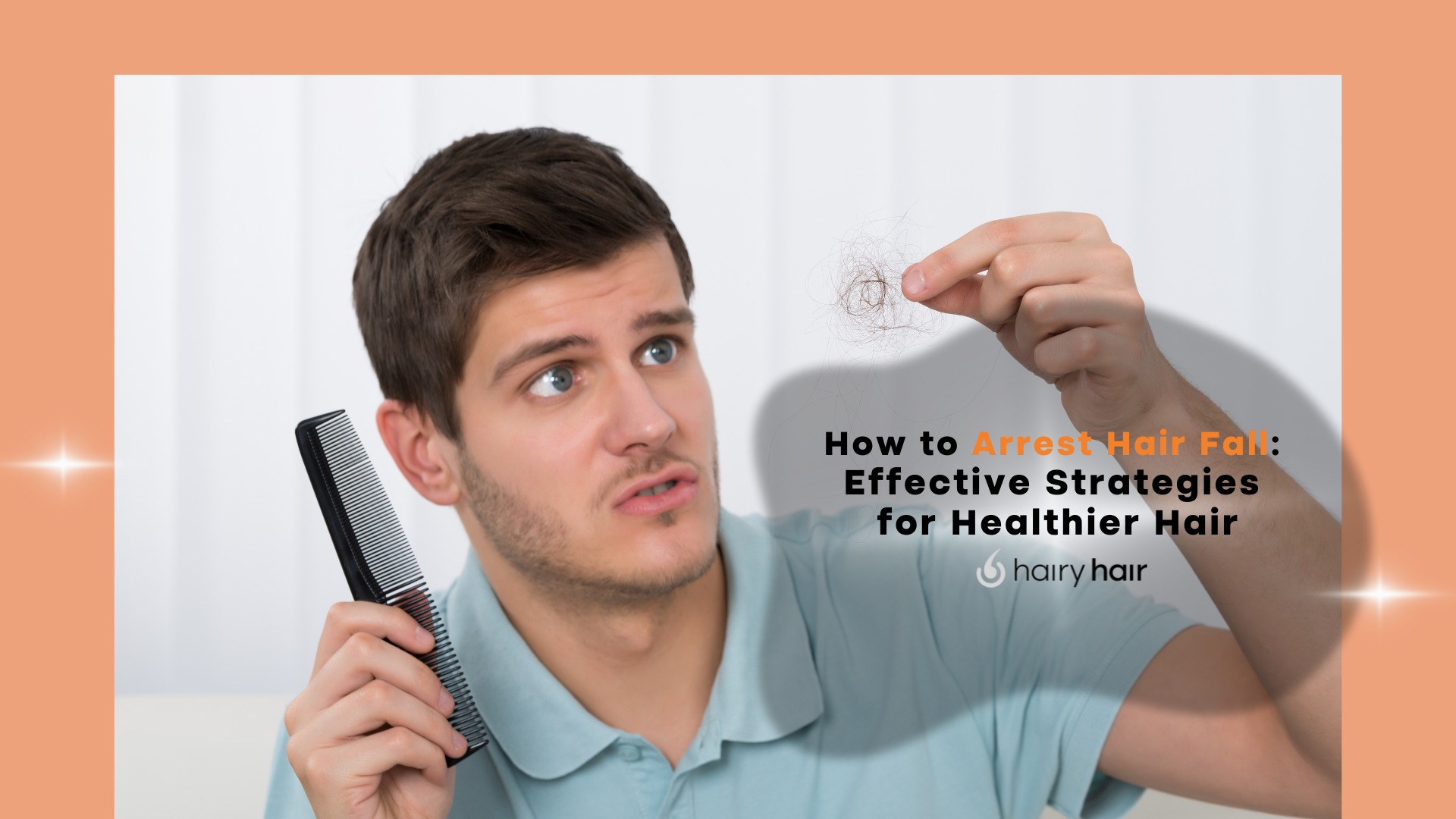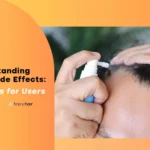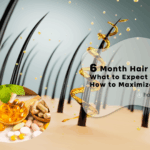How to Arrest Hair Fall: Effective Strategies for Healthier Hair

For those battling with hair loss, you’ve probably done your research on how to arrest hair fall. While hair will always naturally fall out as part of the normal hair growth cycle, it can be concerning when you notice more hairs in the sink or the shower than usual.
In this article, we’ll explore what hair loss is and the different types of hair loss before looking at how lifestyle changes in nutrition and hair care may help to arrest hair fall. If hair loss is persisting or more advanced, we’ll take a look at treatment options including how Hairy Hair can help you tackle hair loss conveniently and discreetly.
- Understanding hair loss
- Nutrition for hair growth
- Supplements for hair loss prevention
- Hair care and styling
- What are the medical treatments for hair loss?
- What are advanced treatments for pattern hair loss?
- What are alternative therapies for hair loss?
- Final thoughts
Understanding hair loss
What is hair loss?
Hair loss, also known as alopecia, occurs when you shed more strands of hair than grow back.
Most healthy people lose up to 100 strands of hair per day as part of their hair’s growth cycle. If you’re noticing more than this there may be an issue causing your hair to fall out.
New strands grow and take the place of the ones you shed, but when fewer or none grow back, it’s considered hair loss.
Hair loss can affect adults of any gender and even children.
Types of hair loss
Hair loss can be permanent or temporary.
The most common types of hair loss include various forms of alopecia, such as androgenetic alopecia (hereditary hair loss) and alopecia areata. Pattern baldness is the most common cause of hair loss in both men and women. Alopecia areata is an autoimmune disease which may cause one or more patches of complete baldness.
The condition can affect hair on the head or body.
Nutrition for hair growth
Essential nutrients for hair growth
There are a range of nutrients that are vital to include in a balanced diet in order to encourage healthy and strong hair growth.
Hair follicles are made up mostly of protein, and a protein-rich diet may help prevent hair loss. A lack of protein can cause the hair follicle to become dry, brittle, and weak.
Vitamin D is important for keeping hair follicles healthy and encouraging hair regrowth.
Vitamin A, partly made up of retinoids, supports healthy hair growth and influences the hair cycle.
Biotin, also known as vitamin H or B7, is involved in the production of fatty acids in the body, which are vital to the natural life cycle of hair.
A nutrient deficiency can sometimes be a cause of hair loss. A biotin deficiency may lead to hair loss. An iron deficiency can also cause hair loss or hair thinning.
Omega-3 fatty acids, zinc, and vitamin E can help promote healthy hair growth and reduce the risk of hair loss.
Mediterranean diet for healthy hair
The Mediterranean diet, rich in raw vegetables and fresh herbs, may help arrest hair fall.
Consuming large amounts of these foods more than 3 days per week may lead to the best results.
The Mediterranean diet is also rich in omega-3 fatty acids, zinc, and vitamin E, which can help promote healthy hair growth. Omega-3 fatty acids help keep hair hydrated and stop it from becoming weak and brittle.
Supplements for hair loss prevention
Multivitamins and Hair Growth
A 2018 research review reported that certain vitamins and minerals are crucial for hair growth and retention, including cell turnover.
You can find daily multivitamins at most grocery stores or drugstores. You can also ask your doctor to prescribe one for you. It’s important to consult a doctor before taking a multivitamin as an excess of some vitamins like vitamin E and zinc can also lead to hair loss.
Multivitamins can help fill any nutritional gaps in your diet and promote healthy hair growth.
Hair care and styling
Gentle hair care for hair loss prevention
Washing your hair semi-regularly may protect against hair loss by keeping your scalp healthy and clean. Caffeine may help improve blood flow to the scalp and promote hair growth and is sometimes used as an active ingredient in hair growth shampoos.
Use a mild shampoo to avoid drying out your hair and causing breakage.
Avoid wearing tight hairstyles that can pull on your hair at the root and may lead to excessive hair shedding.
Let your hair air-dry to avoid irritating your scalp. Additionally, you should avoid heat styling tools that may damage or break the hair shaft causing you to lose hair. If you have to use heat styling tools, use a heat styling protective spray and the lowest setting for your hair type.
Coconut oil may help prevent hair damage from grooming and UV light exposure. Coconut oil is also a carrier oil meaning it can be combined with essential oils such as chamomile and tea tree oils which might improve hair growth.
What are the medical treatments for hair loss?
Medications for hair loss
Minoxidil, also known as Rogaine, is an over-the-counter drug that helps people who are losing hair. Topical minoxidil treatments are available in two concentrations: 2% and 5%.
Apply the liquid or foam to your scalp twice a day, but be aware of possible side effects such as scalp irritation and acne.
Finasteride, also known as Propecia, is a medication that may help with increasing hair growth, but it has various side effects and may take up to 12 months to show results.
The Hairy Hair solution
If you’re looking for an easy and accessible way to regrow hair, Hairy Hair provides a daily pill to help tackle hair loss. Our unique formulation includes carefully selected ingredients backed by research to support hair health and growth.
After consulting with one of our experts you’ll receive a consultation from an Australian GP and your prescription will be delivered straight to your door. No clinic visits are required. Our dedicated support team will be on hand whenever you have a question about your treatment and will help monitor your hair growth.
What are advanced treatments for pattern hair loss?
There are more advanced treatments that may help to fight hair loss. Hormone therapy may be recommended to correct hormone imbalances causing hair loss.
Platelet-rich plasma injections may help reduce hair loss, increase hair density, and increase hair diameter. Low-level laser light therapy may amplify the effects of other hair loss treatments and is a non-invasive treatment option.
Hair transplantation involves taking grafts of hair from healthy areas scalp and implanting them into areas of baldness to increase hair density.
What are alternative therapies for hair loss?
Scalp massage for hair growth
A scalp massage may help promote hair growth. Psychological stress can contribute to hair loss in several ways so alleviating this through relaxation techniques like massages and yoga can be beneficial for hair growth. Oxidative stress can harm cellular DNA in hair follicles.
In one small 2016 study, participants saw improved hair growth after receiving as little as 4 minutes of scalp massages a day for 24 weeks.
Massages can increase circulation which allows your blood to transport more essential oxygen and nutrients to the hair follicles which promotes hair growth.
Final thoughts
Hair loss can be caused by a variety of factors, including genetics, hormonal changes and imbalances, and nutritional deficiencies. A healthy diet rich in essential nutrients, such as protein, vitamin A, and biotin, can help promote healthy hair growth.
Gentle hair care and styling, as well as medical treatments and alternative therapies, can help prevent and treat hair loss. It’s essential to identify and address underlying causes of hair loss to promote healthy hair growth and prevent further hair loss.
If you’re tackling hair loss and are looking for a reliable solution with carefully selected ingredients backed by research, contact Hairy Hair today. Begin your hair growth journey with a simple daily pill designed to encourage your hair to grow back stronger and healthier.
In This Article
Overview
Most Trending Articles


